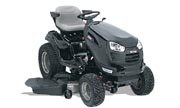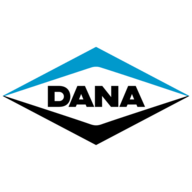jeff9366
Super Star Member
- Joined
- Jan 14, 2011
- Messages
- 12,388
- Tractor
- Kubota Tractor Loader L3560 HST+ ~~~~~~~~~~~~~ 3,700 pounds bare tractor, 5,400 pounds operating weight, 37 horsepower
Searching for buying advice on garden tractor, with 3 pt, rear PTO, strong enough to plow, no need for mower.
Can be used, or new.
Kitchen garden, 1/4 acre. Been plowed and disked before, have brinly hardy 10”plow on craftsman gt 5000. Hard to get enough traction to plow smoothly. Has tractor treads, ballast, and weights. Almost bearable. Same brand disc. Craftsman GT 5000 has no hydraulics, or 3 pt.
The fundamental importance of TRACTOR WEIGHT eludes many tractor shoppers. Tractor capability is more closely correlated to tractor weight than any other single (1) specification.
The median bare weight of subcompact category Three Point Hitch tractors is around 1,400 pounds. Unfortunately, you have to pay for every pound.
Very few subcompact category tractors are sold without 4-WD and a two range HST transmission.
VIDEOS:
https://www.youtube.com/results?search_query=sub+compact+tractor+plowing
Can be used, or new.
Kitchen garden, 1/4 acre. Been plowed and disked before, have brinly hardy 10”plow on craftsman gt 5000. Hard to get enough traction to plow smoothly. Has tractor treads, ballast, and weights. Almost bearable. Same brand disc. Craftsman GT 5000 has no hydraulics, or 3 pt.
Craftsman GT5000
| Weight | 644 lbs 292 kg |
The fundamental importance of TRACTOR WEIGHT eludes many tractor shoppers. Tractor capability is more closely correlated to tractor weight than any other single (1) specification.
The median bare weight of subcompact category Three Point Hitch tractors is around 1,400 pounds. Unfortunately, you have to pay for every pound.
Very few subcompact category tractors are sold without 4-WD and a two range HST transmission.
VIDEOS:
https://www.youtube.com/results?search_query=sub+compact+tractor+plowing
Last edited:


